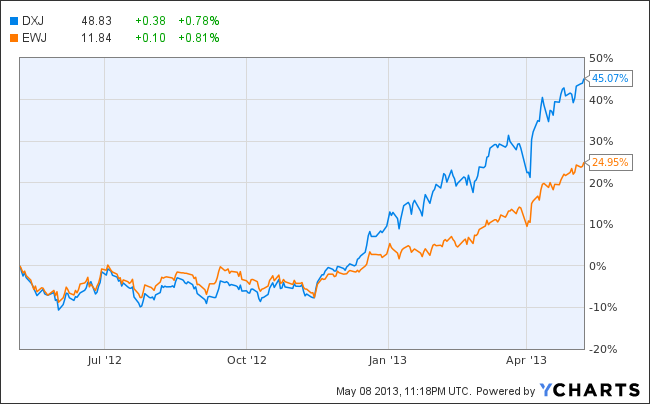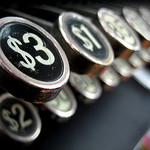The monster rally in Japanese stocks is one of the most intriguing stories in global finance this year. After decades of fits and starts, economic growth and inaction, Japan’s new Prime Minister Shinzo Abe and the Bank of Japan have cut loose the monetary floodgates and set a 2% inflation target. The Nikkei 225 Stock Index is up a mind-blowing 37% through May 8, versus 14% for the S&P 500 Index.

^N225 data by YCharts
The big question for investors going forward is how long the party will continue in Tokyo. Nobody knows for sure, but there are signs of weakness creeping in among the bonzai! cheers at the Tokyo Stock Exchange. Here are four reasons to be cautious:
1) Expensive: Japanese stocks were priced at a reasonable level when this rally got underway last fall. No more. Stocks that comprise the Nikkei 225 are trading at about 28 times earnings, making them the most expensive in Asia. U.S. stocks as measured by the S&P 500 are currently trading at a P/E ratio of 14.
2) Foreign Money: Overseas investors can make up as much as 65% of the daily trading volume in Tokyo on some days—and they are a fickle bunch. They may have started locking in profits. Foreign investors were net sellers in mid-April, according to Japanese Finance Ministry data. In a recent interview with CNBC, Rob Aspin, Head of Equity Investment Strategy at Standard Chartered, predicted a 5% to 15% correction based on his technical analysis of the market.
3) BOJ: The central bank’s shock and awe “Abenomics” monetary policy, featuring aggressive bond buying and monetary growth, has been priced into the market. Second act? There probably isn’t one, and that may dampen enthusiasm for Japanese stocks going forward if the economy really doesn’t take off.
4) Yen: The yen could decline to 130 per US Dollar within two years as foreign investment in Japanese bonds wanes amid a climbing rate of inflation, John Taylor of FX Concepts told Bloomberg. He sees inflation and the Japan’s massive government debt level, clocking about 220% of GDP, scaring off European and American bond investors. Japan will have to rely on domestic demand and probably raise interest rates — bad developments for stocks.
At the moment, investor interest continues to be extremely strong for Japanese ETFs. Some $10 billion has rolled into the WisdomTree Japan Hedged Equity (DXJ) and iShares MSCI Japan (EWJ) funds so far this year.
EWJ is held in the following Covestor portfolios (as of 5/8/13):
- Island Light Capital’s Balanced, Growth and Aggressive portfolios
- Shelter Cove’s Core and Satellite
- Capital Idea’s Macro Plus Income
Photo: Nicolo Cassa
The investments discussed are held in client accounts as of May 1, 2013. These investments may or may not be currently held in client accounts. The reader should not assume that any investments identified were or will be profitable or that any investment recommendations or investment decisions we make in the future will be profitable.




